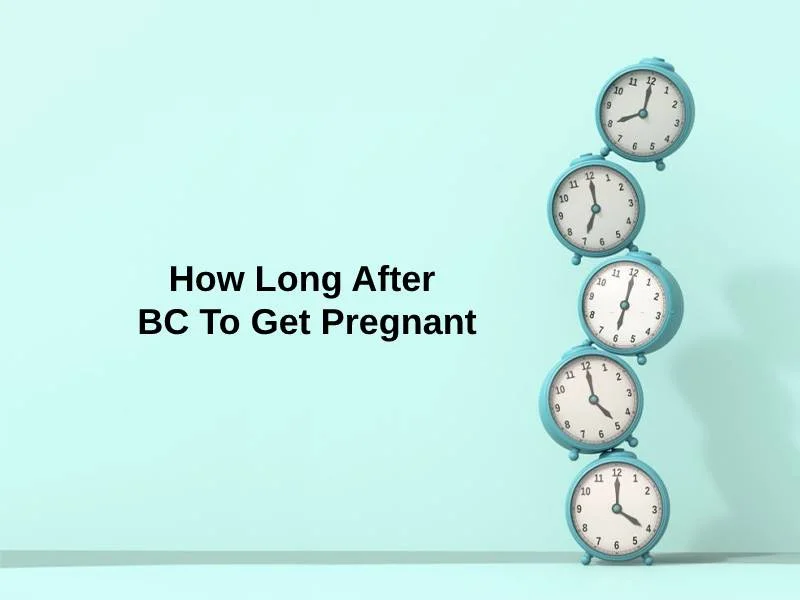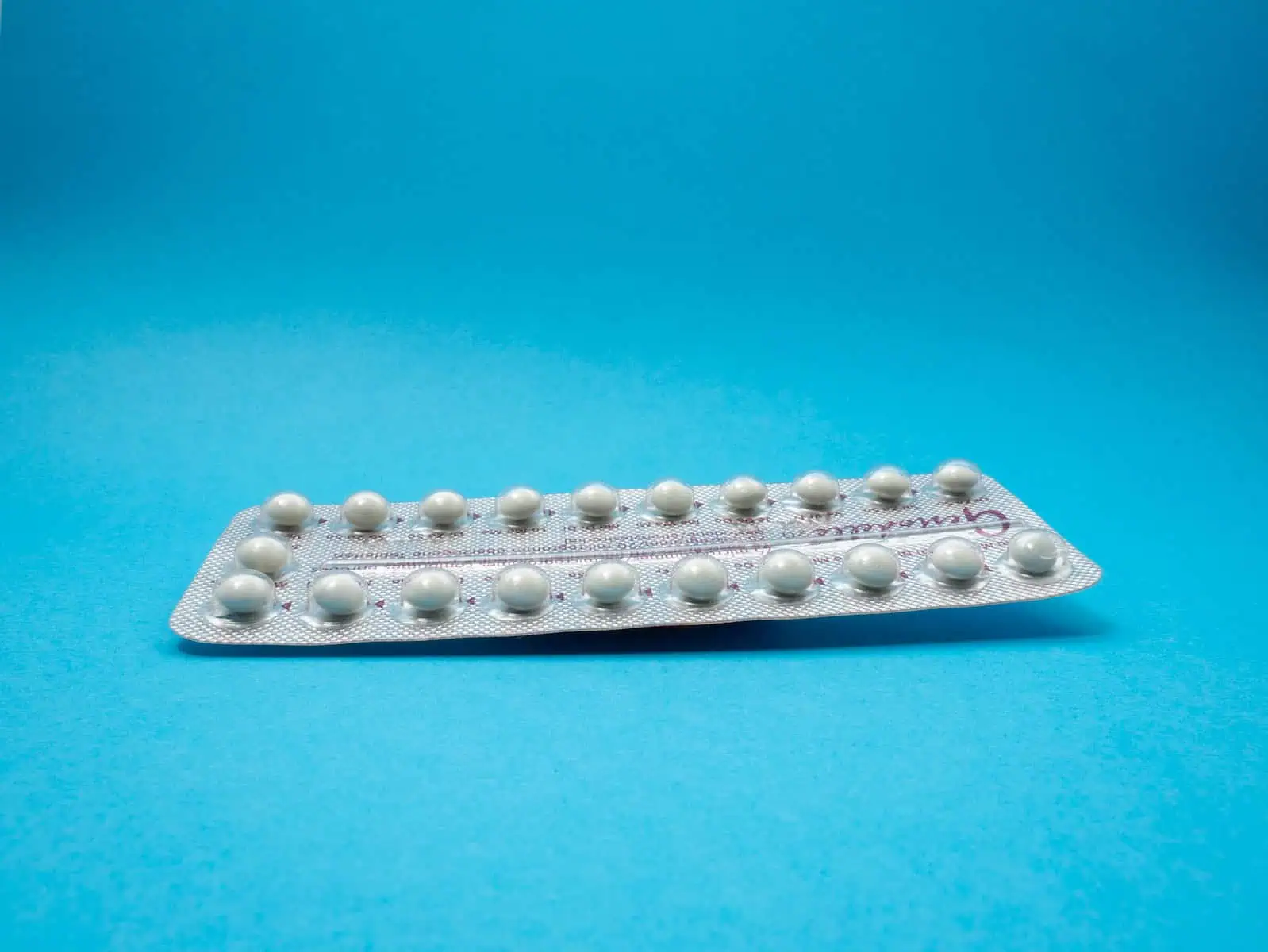Exact Answer: At least 1 – 3 months
BC stands for birth control, which is a crucial step one takes to prevent or reduce the chances of pregnancy. In addition, it could also help with acne, preventing STIs, and menstruation. Birth control can be the implementation of appropriate devices, agents, drugs or medication, specific sexual practices, or procedures that are done surgically, in order to help one rule out the probability of pregnancy. Birth control hands control over to the people, allowing them to choose if and when they wish to conceive.
Birth control includes natural methods such as abstinence and withdrawal. It can also mean include devices such as condoms, sponge, diaphragm, cervical cap, contraceptive injections, intrauterine device (IUD), contraceptive pill, contraceptive patch, vaginal ring, implants, emergency contraceptive pills, and many more.

How Long After BC To Get Pregnant?
| Type of birth control | The duration between stopping BC and potential pregnancy |
| Birth control pills | 1 – 3 months |
| Vaginal ring and birth control patch | 1 – 3 months |
| Birth control implants | Within 1 month |
| IUD | Within 1 month/6 – 12 months |
| Birth control injection | 10 – 18 months |
Birth control pills, or otherwise called oral contraceptives, are taken every day. They contain either only progestin or estrogen and progestin together. Contraceptive pills function by making the uterus lining thinner and the cervical mucus thicker, and halting ovulation by preventing the release of the ovum from the ovary. For women who take the birth control pills regularly without fail, the effectiveness of the pills is 99%. Once you stop taking contraceptive pills, you may become pregnant anywhere from within a month to three months.
The vaginal ring is a plastic ring that is flexible, which is inserted into the vagina, and releases a low concentration of the hormones, estrogen, and progestin. It makes the cervical mucus thicker and stops ovulation. Note that it can only work for three weeks, after which the woman removes the ring to go through menstruation for a week.
Birth control patches are small square patches that adhere to the skin and release hormones such as progesterone and estrogen into the woman’s blood. This stops ovulation, makes the cervical mucus thicker, and changes the lining of the uterus.
You may become pregnant within 1 to 3 months of removing either the vaginal ring or the contraceptive patches.

The contraceptive implant is essentially a plastic rod that is thin and flexible. It contains progestin, which it releases at a slow and gradual rate. It is inserted into the woman’s upper arm and can function for up to 4 years, but you may remove it whenever you wish to. After the removal of the implant, there is a chance of pregnancy within one month.
The IUD or intrauterine device is basically a T-shaped contraption that is small and flexible and contains a coil. It is placed inside the uterus. There are two different kinds of IUDs, including a copper IUD and a hormonal IUD. The copper IUD can be effective for up to 10 years and serves as a spermicide by releasing copper. The hormonal IUD thickens cervical mucus and makes the uterus wall thinner by releasing progestin. You can get pregnant within one month of removing a regular IUD and within 6 to 12 months of removing a hormonal IUD.
The contraceptive shot injects medroxyprogesterone acetate into the woman’s muscle, after which it is slowly released over time. It works by making the cervical mucus thicker and halting ovulation. After the last injection, a majority of women conceive within 10 to 18 months.
Why Does It Take That Long To Get Pregnant After BC?
When it comes to birth control pills, they inhibit the process of ovulation using hormones such as estrogen and progestin. Hence, after stopping the pills, the body rids itself of these hormones in 24 hours. This means that you’ll start ovulating from the next month, continuing your menstrual cycle. Thus, it can take 1 to 3 months to get pregnant after discontinuing the contraceptive pills.
Similarly, after removing the vaginal ring or the birth control patch, hormones like estrogen and progestin will leave the body in 1 to 3 months. Since these hormones are no longer released, ovulation begins again and brings the cervical mucus to its original consistency. This means that the ovary can release its monthly egg, in order to be fertilized, within 1 to 3 months of removing the birth control devices.
After removing the contraceptive implant, the hormone progestin will no longer be released. Thus, ovulation will begin in the next month, allowing one to get pregnant.

After removing a copper IUD, copper ions will no longer be released and won’t act as a spermicide. This enables fertilization. After removing a hormonal IUD, the cervical mucus will return to its original consistency and so will the thickness of the uterus wall. The effects of IUDs take at least a month to wear off, and one will start ovulating in the next month after removal. But for many, it can take up to 6 months or a year to conceive.
After receiving the last contraceptive injection, the medication and the hormones remain in the body for a longer time, thus hindering the ability to get pregnant. It may take one up to 10 to 18 months after the injection to become pregnant.
Conclusion
To conclude, there are different types of birth control for both women and men, that have varying waiting periods to get pregnant after stopping them. While you are actively on birth control, you may not be able to get pregnant, but if and when you do get off of birth control, you will once again be able to conceive, once your body returns to its original state.
Other than birth control, there are different factors that contribute to whether you will be able to become pregnant. So it is advised to consult a doctor regarding your options for birth control, depending on whether you want to get pregnant or not in the near future.